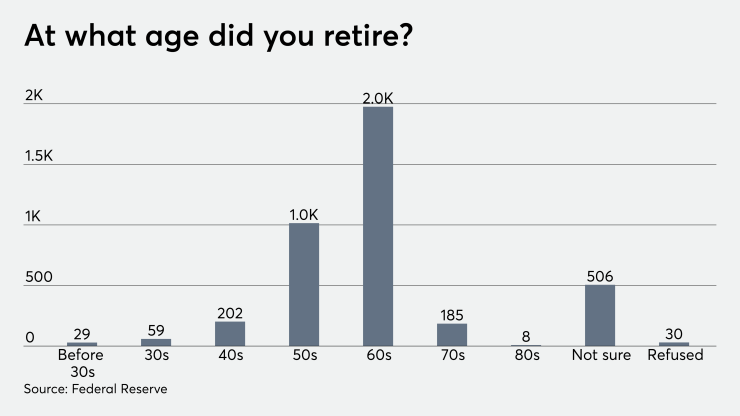Welcome to Retirement Scan, our daily roundup of retirement news your clients may be talking about.
Pre-retirees should not discard the possibility that they would have to apply for Social Security retirement benefit earlier than planned, according to this article in Motley Fool. That's because a report from Voya Financial shows that 60% of seniors have filed early, a measure that may force them to retire sooner than expected as a result of various factors, such as job loss and illness. Filing for Social Security early could mean reduced benefit payouts, so clients are advised to build their savings while they still can to avoid this scenario.
Although a 401(k) is an excellent vehicle to build their savings, it can be a tax trap if investors are unaware of the plan's rules, according to this article in Kiplinger. For example, 401(k) distributions will be subject to investors' maximum tax rates, they can boost their taxable retirement income and may even result in the taxation of Social Security benefits, according to the article. A 401(k) is also subject to RMD rules and prone to future tax changes. The plan, however, is a poor estate planning tool, as heirs will owe taxes on the distributions.
Aside from creating a budget to boost their financial health, clients are advised to also make sure to rebalance their 401(k) portfolio this year, a financial expert says in this Yahoo Money article. Rebalancing a 401(k) portfolio can be done once a year to ensure clients stay on track in achieving their retirement goals, the expert says. “People spend all this time setting out an allocation: 80% stocks and 20% bonds. They set it and forget it.”
Changes under the Tax Cut and Jobs Act and the Secure Act make Roth conversions a wise financial move to save on taxes, but there are traps to avoid when converting traditional assets into a Roth account, writes a Forbes contributor. For starters, retirees have to start taking RMDs from traditional IRAs at age 72, and are not allowed to convert these mandatory withdrawals into a Roth, he says. Advisors are tasked with helping their clients understand the aggregation and the five-year rules to avoid costly mistakes.
“Investment allocations can differ from one fund to another, and so do the expense ratios,” an expert cautions.
Clients are advised to build an emergency fund and contribute to an employer-sponsored retirement plan before investing in the long term, according to this article in CNBC. They will be better off investing in a Roth IRA if their goal is to secure retirement or build long-term wealth. “Investing in something that gives you a tax break will almost always be preferable to investing inside a taxable account. I think of a taxable account as something to explore after you have funded your 401(k) and your IRA,” says Morningstar's Christine Benz.







